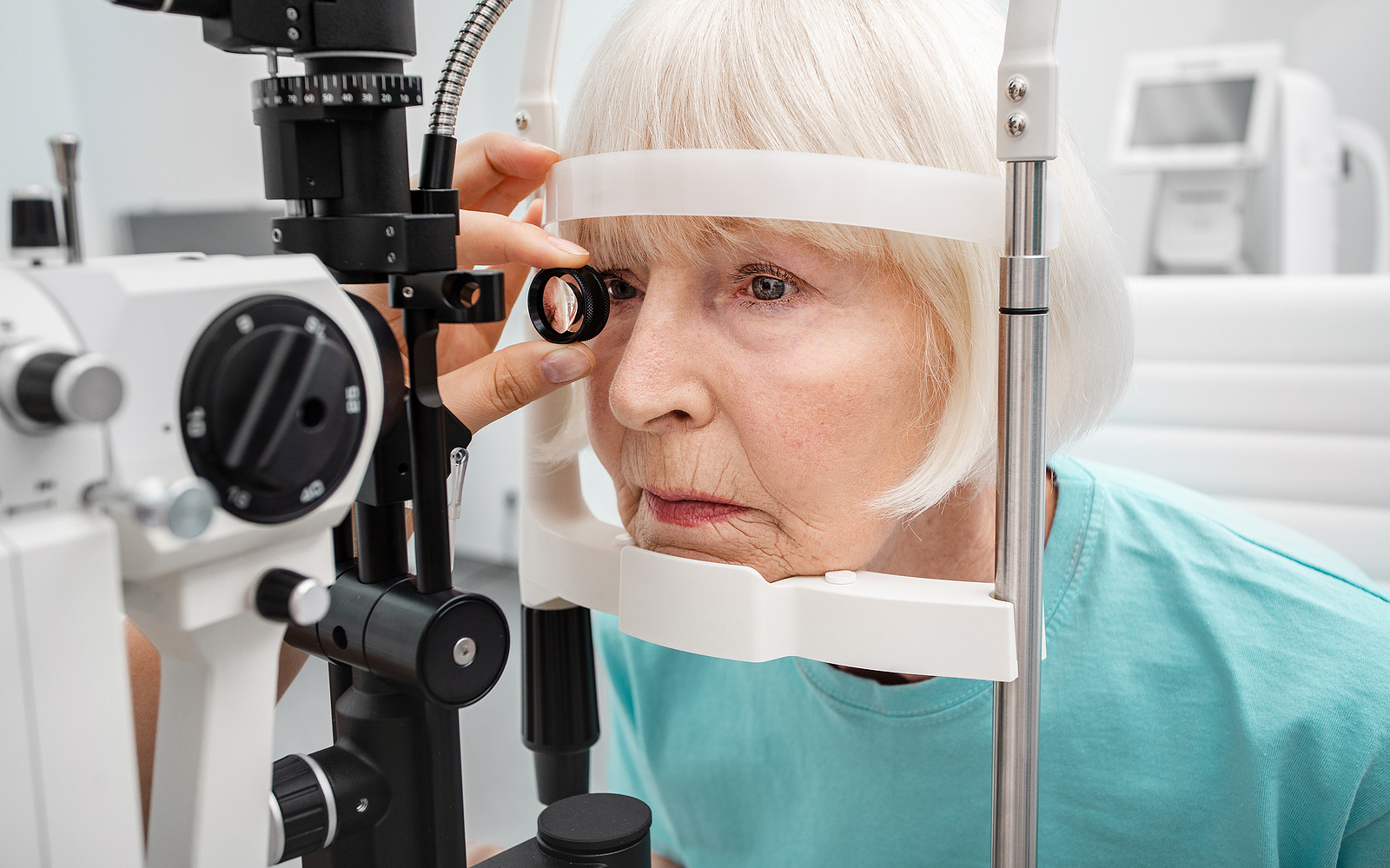Women’s Eye Health Month: Protecting Your Vision

Women are more likely than men to have vision problems, according to several studies. In fact, 67% of those with blindness are women, per the National Eye Institute. Because data also shows that women face a higher risk of eye disease, April has been declared Women’s Eye Health and Safety Month.
At Swagel Wootton Eye Institute, we hope to raise public awareness and get more women to put their eye health first. Our eye care specialists in Mesa and Chandler can provide treatment for each of the top conditions that threaten women’s vision.
Top Vision Issues Experienced by Women
Because women live longer than men, they’re susceptible to age-related eye conditions, according to the WHO’s World Report on Vision. For example, even adjusting the statistics to discount age-related factors, 7% more women than men develop distance vision problems.
Women have a higher rate of these major eye conditions:
- Age-related Macular Degeneration
- Cataracts
- Glaucoma
- Refractive Error
- Dry Eye
Age-related Macular Degeneration
Vision experts aren’t sure what causes age-related macular degeneration. However, age, high blood pressure and excess weight may exacerbate the condition. AMD damages a part of the retina called the macula.
There is no treatment for the condition, but we often prescribe vitamins and injections to help reduce the impact on your sight.
Cataracts
Cataracts occur when your natural lens clouds over, preventing light from focusing on the retina. Cataract symptoms include halos around lights, less vivid colors and fuzzy vision. Without treatment, it can lead to blindness.
Stronger glasses can help improve your vision in the early stages of cataracts. If cataracts interfere with your vision enough to prevent daily activities, you may need to get a new, clear lens via cataract surgery.
At Swagel Wootton, we specialize in cataract and LASIK eye surgery in Phoenix. So, you’re in good hands with our team of surgeons and support staff.
Glaucoma
When you have glaucoma, fluid builds up in the eye, increasing pressure that can damage the optic nerve. Scientists are still working on pinpointing the exact cause of glaucoma. However, identified risk factors include a family history of the disease and age. People age 60+ and those with heart disease or diabetes are more likely to develop glaucoma.
In the early stages of this condition, we typically prescribe medicated eye drops that lower eye pressure. If your glaucoma continues to worsen or threatens your vision, you may need glaucoma surgery. We may recommend an iStent device to lower the pressure in your eye. In certain cases, Laser Peripheral Iridotomy (LPI) can create an alternate drainage port to prevent fluid buildup.
Schedule a consultation for glaucoma treatment in Phoenix.
Refractive Errors
If your eye cannot focus images properly, you may have a refractive error. There are four types of refractive errors: farsightedness, nearsightedness, astigmatism and presbyopia (loss of vision due to age).
Eyeglasses and contact lenses correct your vision for refractive errors. For those who would like to become less dependent on eyeglasses and contacts, LASIK surgery can fix many types of refractive errors by reshaping your cornea.
Dry Eye
Older women tend to experience symptoms of dry eye as they age, particularly after menopause. Dry eye condition has many causes but similar symptoms, including stinging, watery eyes, temporary blurry vision, and burning.
Swagel Wootton offers several treatment options for dry eyes. These treatments range from serum tears to prescription eye drops. Our team of expert eye care professionals can work with you to determine what treatment option will be best for you and your eyes.
Contact us if you’re looking for cataract and LASIK eye surgery in Phoenix or just want to observe Women’s Eye Health and Safety Month with an eye exam. Our care specialists in Mesa and Chandler can provide vision care for your entire family.
[DISPLAY_ULTIMATE_SOCIAL_ICONS]









